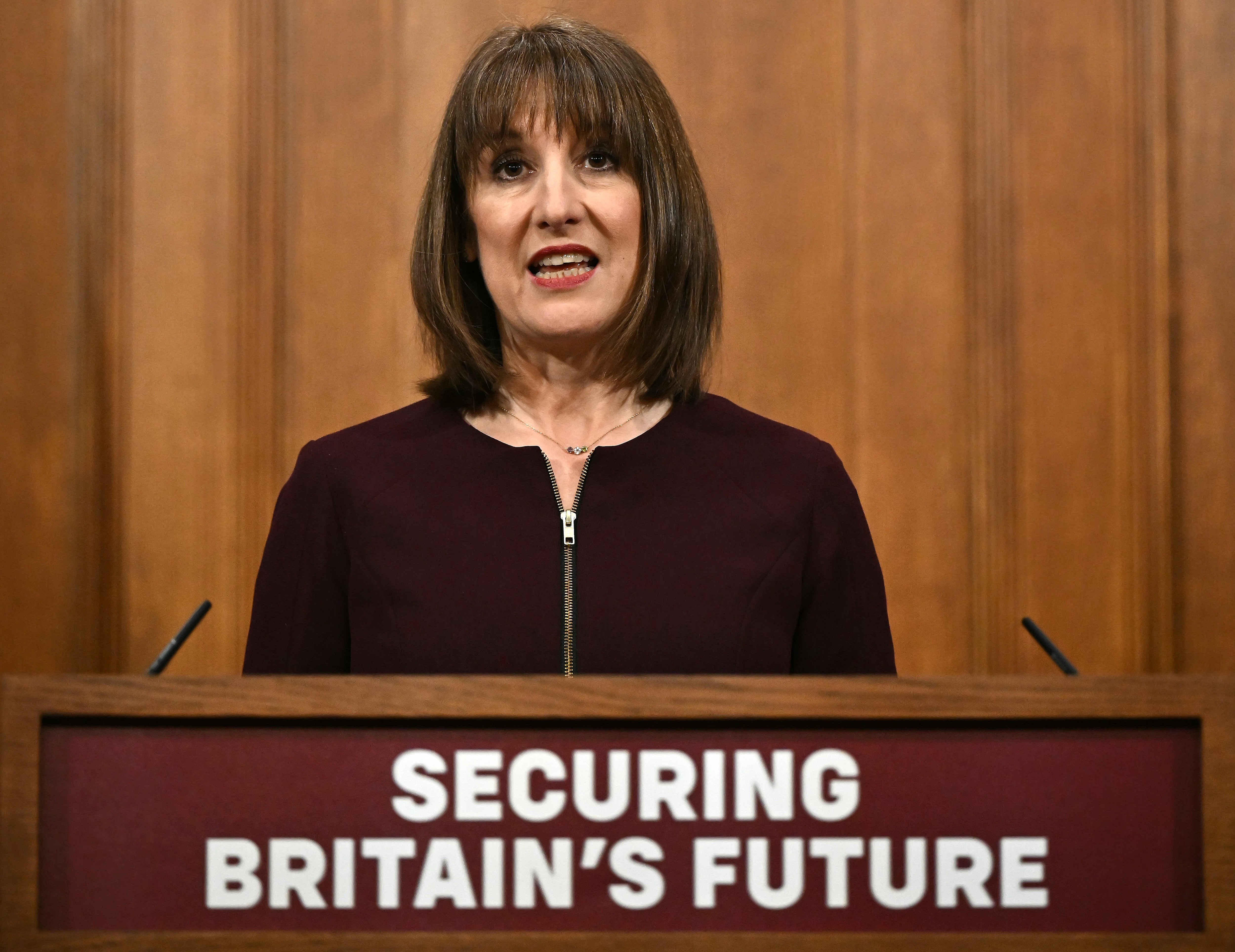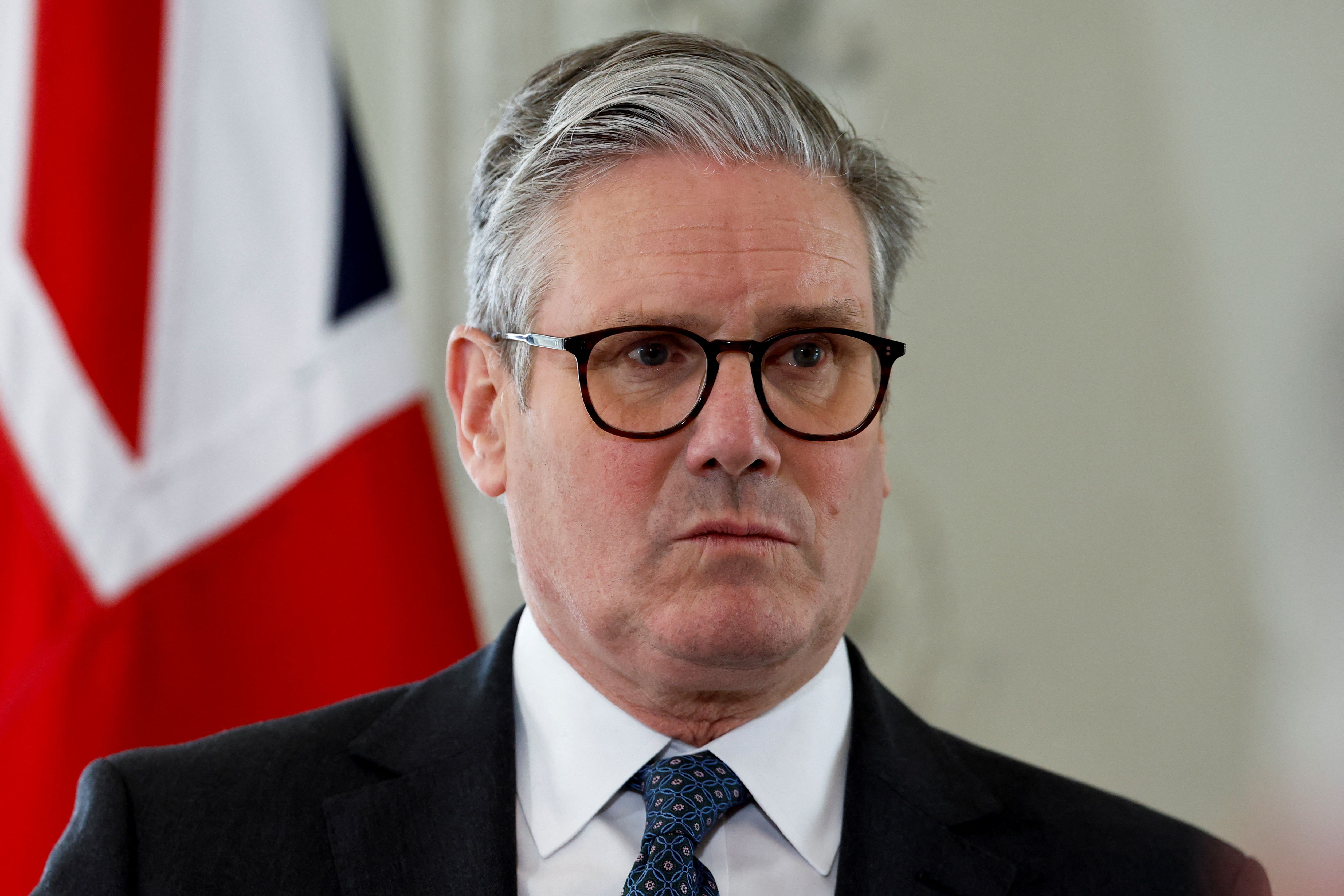Rich and retirees at risk of new tax raids in the autumn budget, the experts warn

Pensioners and the rich could face a Shock tax raid Of Rachel Reeves In October, while desperately trying to balance the books, they warned the main economists.
It comes among the concerns that the chancellor has not left enough space for finances to resist challenges in the economy.
Paul JohnsonThe Director of the Think Tank of the Institute for Fiscal Studies (IFS), said in his briefing for the post-Primavera declaration that the chancellor had left to small changes to the forecasts and warned that there was a “good possibility” that would need to increase taxes in its autumn budget.
Johnson said he was worried that pensions “looked like a juicy place to go for a lot of money”.

“This risks months of speculation on what tax increases could be: a raid on pensions, a tax for wealth on the richest, another increase in capital gains?”
He also warned that “simple speculation on increases can cause economic damage”.
The suggestion of the respected economist would help Mrs. Reeves to appease the growing anger between parliamentarians and work unions with respect to the cuts to the wealth of £ 4.8 billion with the warnings that her measures will leave worse than £ 500 poorer instead of putting an extra £ 500 in the pockets of people.
Such was the political anger on the impact of the cuts to the benefits and for the loss of money for the assistants that the Minister of Labor and Pensions Stephen Timms was forced to answer an urgent question in the municipalities on Thursday’s issue.
The left of the Labor Party and the unions have requested a specific wealth tax to balance the books rather than putting it on the back of the poorest in society.
But speaking in a press conference in Paris, Prime Minister Sir Keir Starmer resisted to claim future taxes without completely excluding them.
He said: “We did not increase taxes in the spring declaration and I think in every press conference that I did before yesterday the challenge for me was” you will have to increase taxes in the spring declaration, right? “And I said” wait for the spring declaration “. We got the spring declaration and we don’t”
He stressed that the Laborists had promised not to increase national insurance contributions on income tax, VAT or employees during the elections and had not yet done so.
“We kept well with those promises,” he added.
“Obviously I am not going to write future budgets, every prime minister and chancellor has taken that position, but if you look at the fact that we have not increased the taxes that indicate the mentality that we bring to this.”
The warning on a potential tax raid arrived when Donald Trump announced 20 % rates on cars exported to the United States with the threat of being imposed more. The office for the liability of the budget has already warned that the US rates could wipe out the head of £ 10 billion that Reeves had left in the spring declaration.
And with doubts that grow up on the plans of Mrs. Reeves, former Chancellor Tory Ken Clarke He also suggested that the chancellor should increase income tax or value added tax (VAT) in October.
He said to Times Radio that he would have increased VAT Wednesday, adding: “I think he should go for the value added tax or some levels of income tax in the autumn, probably VAT”.
The IFS also warned that the new official data show a dramatic decline in life standards in the last year.

In the 12 months in March last year, the average real family income decreased by 2 %, said the Think Tank, which implies that there has been no growth in income since 2016.
Mrs. Reeves denied that there would be further tax increases or cuts in the budget in the autumn, but stopped excluding them completely.
When asked if he should have returned with multiple cuts or tax increases, he said: “No.”
But pushed if this meant that he could exclude these measures, she replied: “What I am saying is that there are a lot of things that this government is making that they are contributing to growth”.
In the meantime, the recourse was growing against the decision of Mr. Reeves to cut wellness while challenged the evaluation of the government’s impact that would put 250,000 more people in poverty, including 50,000 children.
The foundation of the resolution said: “The combination of a weak economic perspective and cuts to the benefits that fall out of the low -income families disproportionately means that the living standards are on the way to fall in the next five years for the poorest of families on average of £ 500 on average, according to the analysis during the night of the foundation of the resolution of spring 2025.”
However, Reeves told Sky News: “I am absolutely certain that our reforms, instead of pushing people into poverty, will bring people to work.
“And we know that if you move from well -being to work, you are much less likely to be in poverty.
“This is our ambition, improve people, don’t worsen people, and even the social status will always be there for the people who really need it.”
The separate data published on Thursday showed a new record number of children who live in poverty in the United Kingdom.
The data published by the Department for Labor and Pensions showed that 4.45 million children were estimated at low -income families, after housing costs, in the year until March 2024, compared to the 4.33 million of the previous year and the highest figure since the comparable records for the United Kingdom began.




